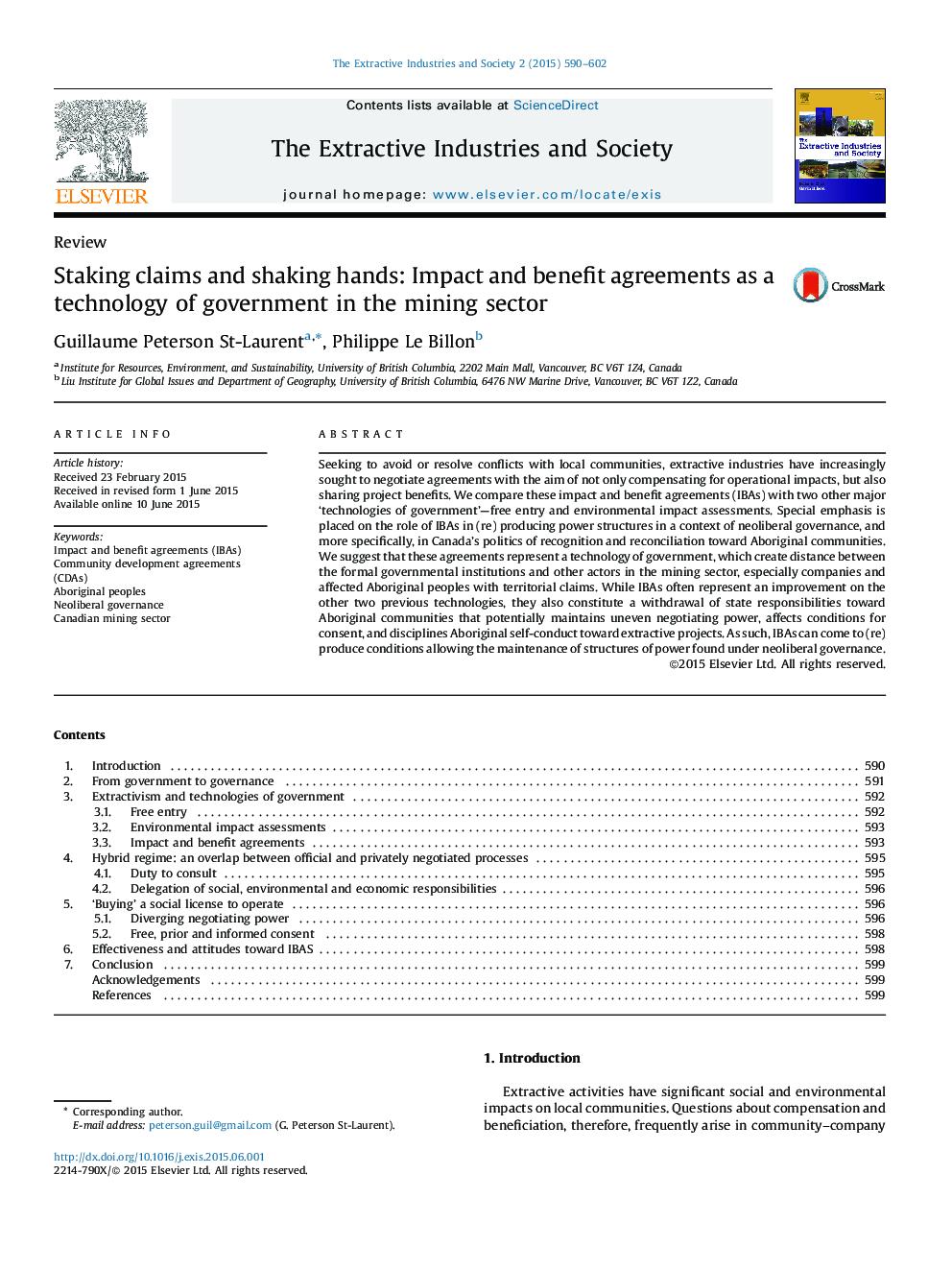| Article ID | Journal | Published Year | Pages | File Type |
|---|---|---|---|---|
| 1047459 | The Extractive Industries and Society | 2015 | 13 Pages |
•We examine the potential of impact and benefit agreements (IBAs) in (re) producing structures of power in a context of neoliberal governance.•We compare IBAs with two other major ‘technologies of government’: free entry and environmental impact assessments.•IBAs constitute a withdrawal of state responsibilities toward Aboriginal communities by potentially maintaining uneven negotiating power, affecting conditions for consent, and disciplining Aboriginal self-conduct toward extractive projects.•The mining sector needs to fundamentally (re) question the role that the government should occupy in the regulation of community–company negotiations.
Seeking to avoid or resolve conflicts with local communities, extractive industries have increasingly sought to negotiate agreements with the aim of not only compensating for operational impacts, but also sharing project benefits. We compare these impact and benefit agreements (IBAs) with two other major ‘technologies of government’—free entry and environmental impact assessments. Special emphasis is placed on the role of IBAs in (re) producing power structures in a context of neoliberal governance, and more specifically, in Canada’s politics of recognition and reconciliation toward Aboriginal communities. We suggest that these agreements represent a technology of government, which create distance between the formal governmental institutions and other actors in the mining sector, especially companies and affected Aboriginal peoples with territorial claims. While IBAs often represent an improvement on the other two previous technologies, they also constitute a withdrawal of state responsibilities toward Aboriginal communities that potentially maintains uneven negotiating power, affects conditions for consent, and disciplines Aboriginal self-conduct toward extractive projects. As such, IBAs can come to (re) produce conditions allowing the maintenance of structures of power found under neoliberal governance.
